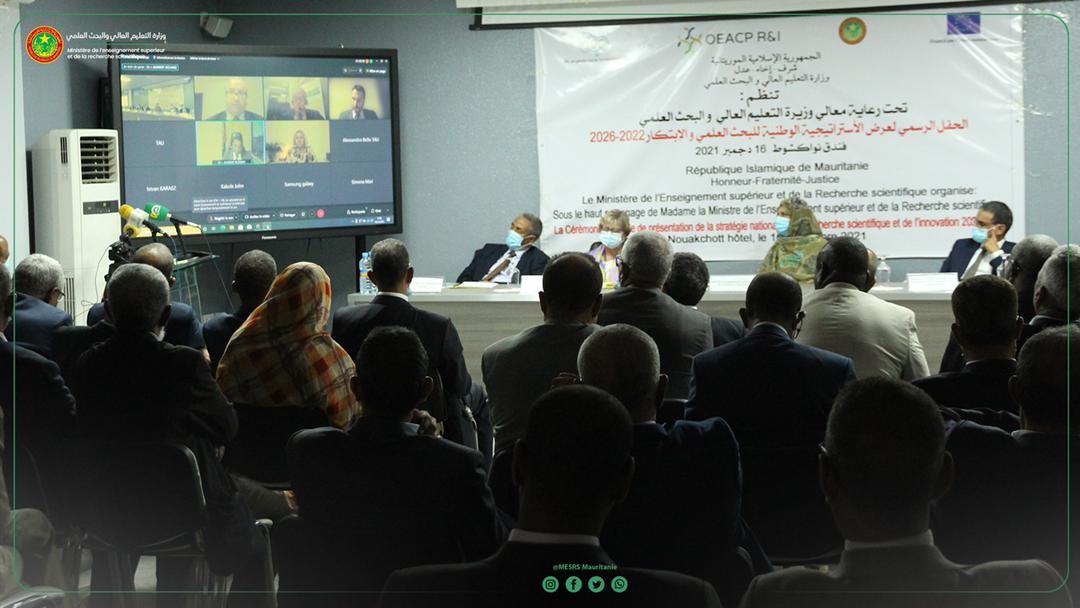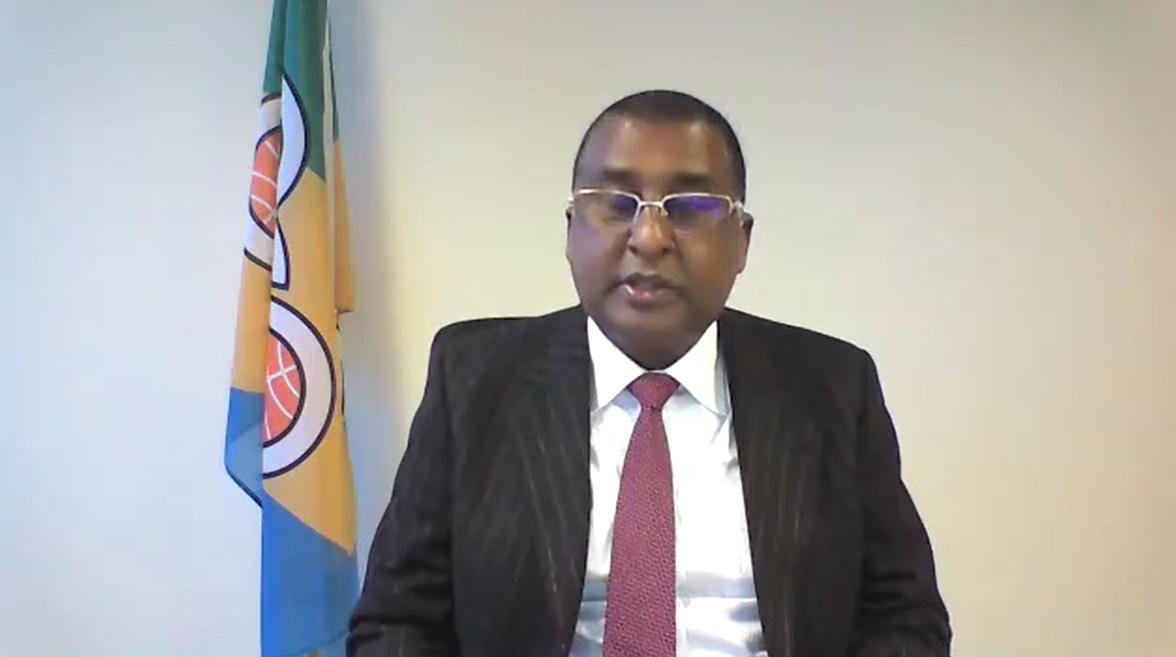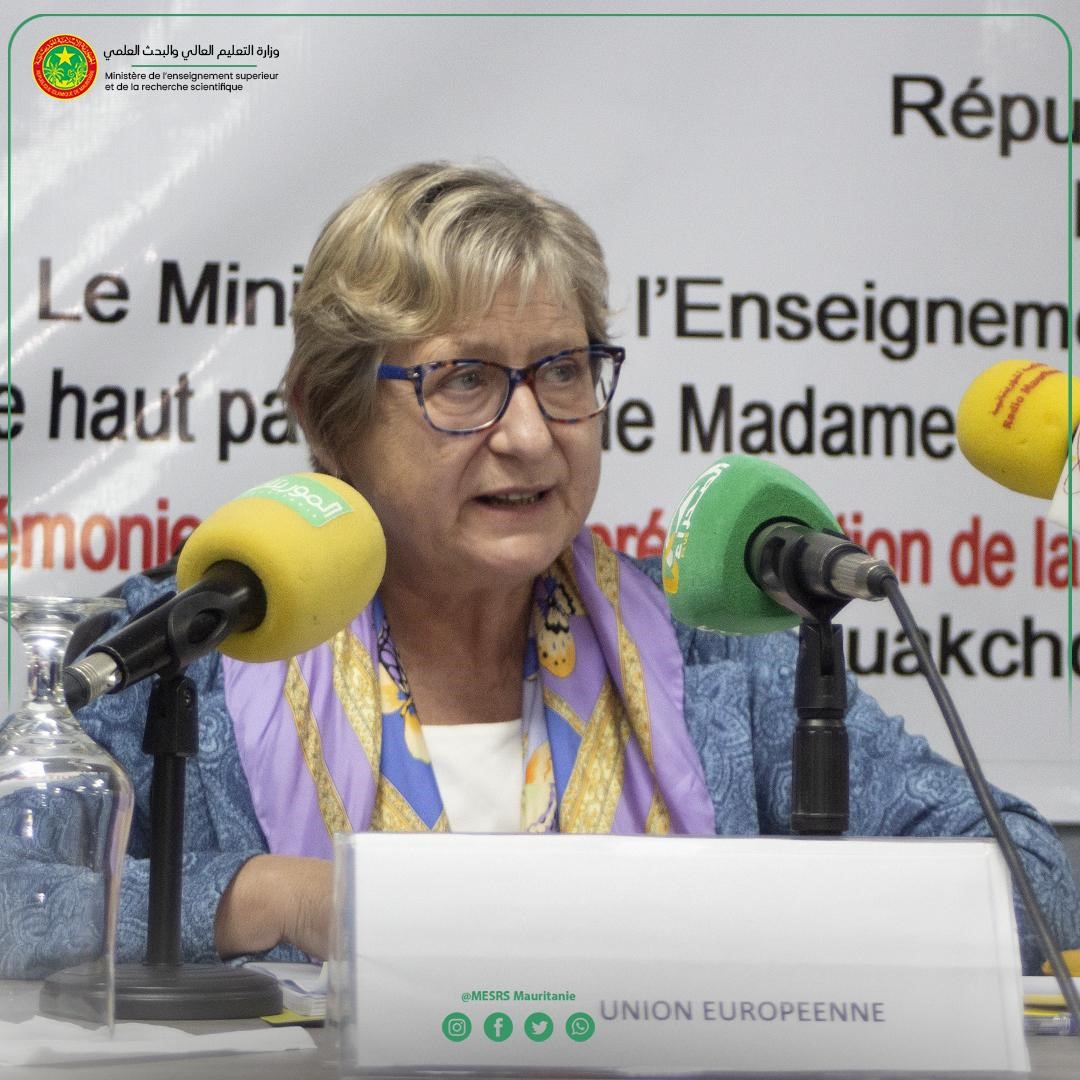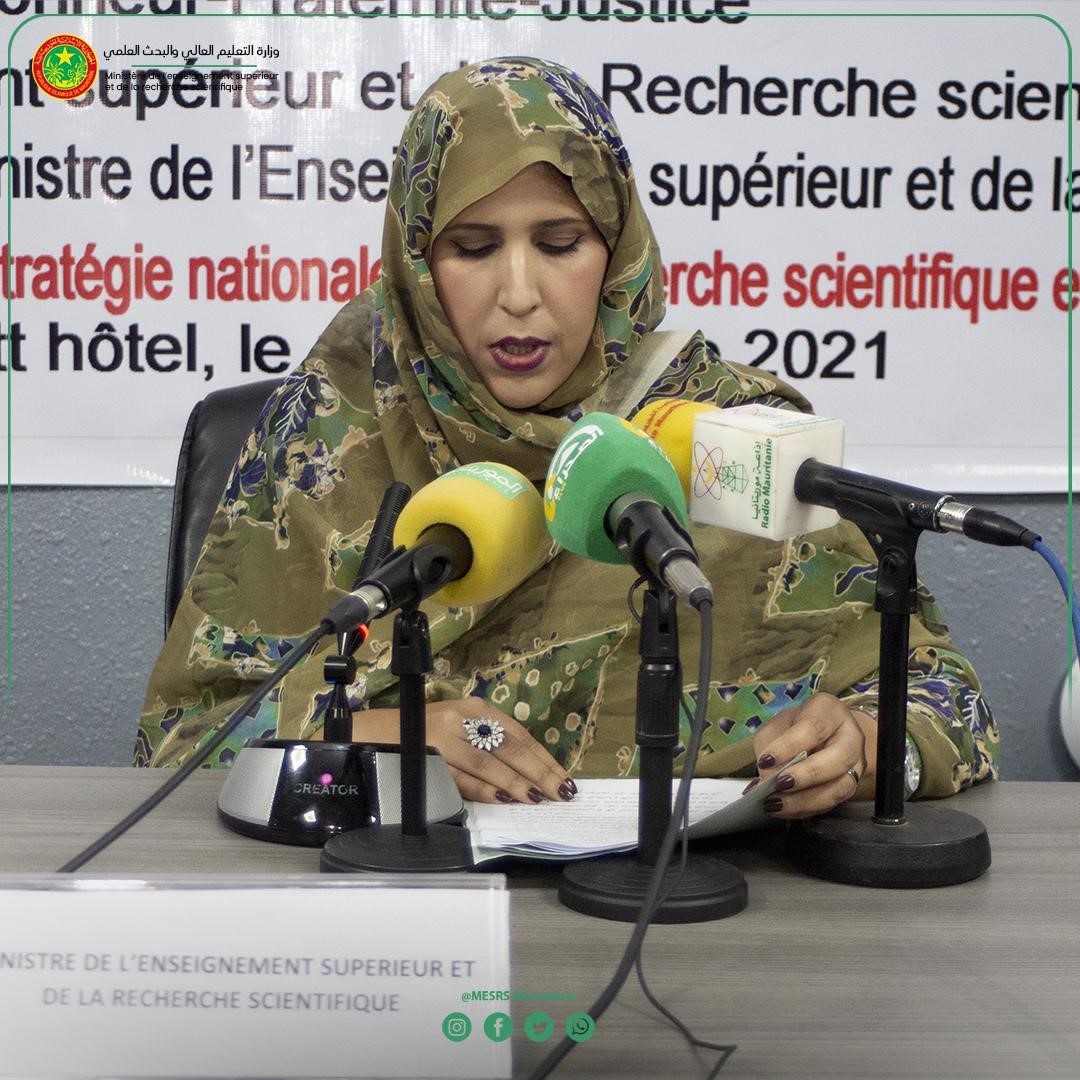Key policy recommendations were submitted to the Mauritanian government for developing a strategy to make research and innovation (R&I) a vector for sustainable development. They result from the OACPS R&I Policy Support Facility (PSF) service, requested by the Ministry of Higher Education and Scientific Research, through the National Agency for Scientific Research and Innovation.
Around 60 high-level national and international representatives participated on 16 December 2021 in a hybrid mode (in Nouakchott and online) in the closing ceremony of the PSF service in Mauritania, implemented by the Organisation of African, Caribbean and Pacific States (OACPS) and funded by the European Union (EU).
Among them, many key stakeholders of the national R&I system and high authorities – including the Minister of Higher Education and Scientific Research, and the Minister of Digital Transition, Innovation and Modernisation of Administration, academic vice-chancellors, heads of higher education and research institutions, and private sector officials – as well as representatives of the OACPS Secretariat and the EU Delegation in Mauritania.

In his presentation, Professor Ahmedou Haouba summarised the policy recommendation report elaborated between July and December 2021 by the panel of international experts he chaired.
The 20 recommendations for developing an inclusive R&I strategy (2022-2026), aiming to make research and innovation “a lever for economic and social transformation, value and job creation, growth impetus and social welfare”, focus on 6 areas of action:
- A strengthening of the R&I governance system, based on the High Council for Scientific Research and Innovation (HCRSI), the ANRSI and the Mauritanian Authority for Quality Assurance in Higher Education (AMAQ-ES).
- A substantial increase in the budget allocated to R&I (aiming for between 0.3 and 0.6% of GDP by 2026, compared to 0.1% currently), combined with the optimisation of research funding procedures (multi-year R&I programme -programme pluriannuel de R&I-PPRI, competitive projects, etc).
- An inclusive investment in human capital, to mobilise the necessary skills and knowledge, including indigenous ones, on R&I priorities: creation of a “Mauritanian research space”, mobilisation of the diaspora, valorisation of the researcher’s profession, masters and doctorate training associated with clusters and sectoral centres of excellence, among others.
- The creation of centres of research excellence, with high-tech equipment.
- Better synergy between R&I and the productive and societal environment (multiannual innovation support programme- programme pluriannuel de soutien à l’innovation-PPSI, support for the incubation and emergence of start-ups, increased role of large companies in R&I, public ordering of innovative products or services, incentives to export local products with higher added value).
- A strengthening of international cooperation to support the reform of the national R&I system, and to connect it more to the rest of the world.

Dr Norbert Richard Ibrahim, Assistant Secretary-General (ASG) of the Department of Political Affairs and Human Development of the OACPS, reminded in his speech that “the development and effective operationalisation of the Research and Innovation strategy requires the cooperation of all stakeholders“, while adding “so far, we have been very impressed by the exceptional collaboration of all national stakeholders”.

In her speech, Ms Madeleine Onclin, Head of the Inclusive and Sustainable Growth Sector of the European Union Delegation to Mauritania, stressed the need for the national authorities to take ownership of the report: “The budget for implementing the R&I strategy represents a fairly substantial sum – around 45 million euros – and a significant contribution from the Mauritanian government will be essential”. Nevertheless, she also stressed the importance of international cooperation and recourse to technical and financial partners to support the R&I sectors identified as priorities in the report (agriculture and livestock, renewable energies, sea products, etc.).

Mrs Amal Sidi Cheikh Abdallahi, Minister of Higher Education and Scientific Research, concluded the final event by recalling that the Mauritanian State pays great attention to scientific research and innovation, “which has been concretised over the last two years by the creation of different key R&I institutions“, and that the national research and innovation strategy will contribute to reinforcing the performance of this sector which is crucial for the country’s future.
This final event of the PSF service marks an important milestone for the OACPS Secretariat in its efforts to support the improvement of ACP countries’ R&I systems.
